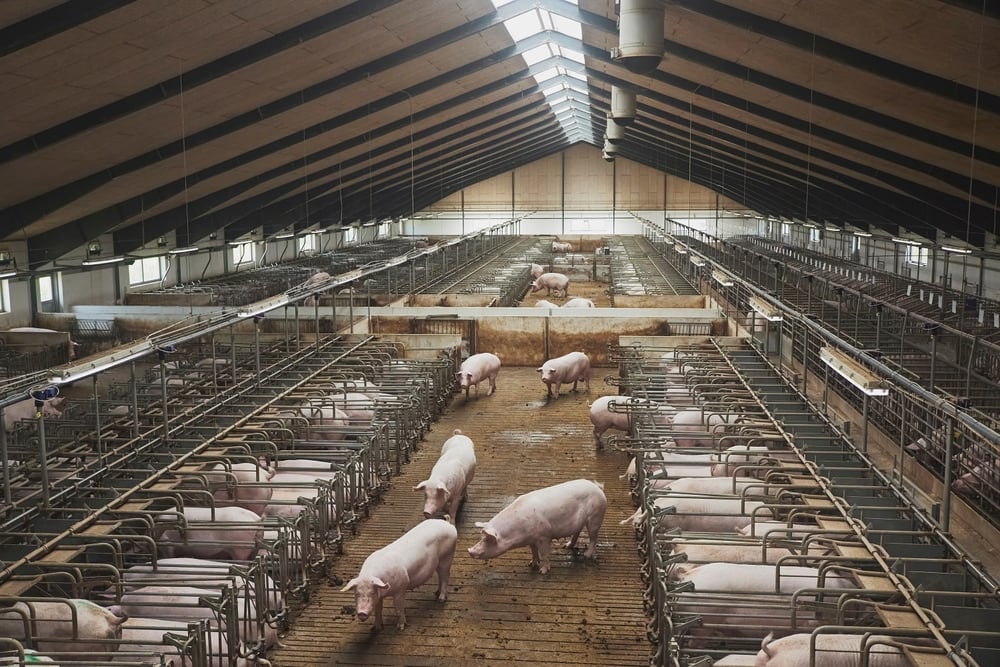Alabama’s recent move to ban the sale of cultivated meat marks a significant step back in the fight for market freedom and animal welfare. The law, which takes effect this month, criminalizes the sale of lab-grown meat products, with penalties including fines and potential jail time. Critics argue that the ban is not only an anti-competitive concession to the state’s meat industry but also likely violates the Interstate Commerce Act. The legislation reflects a broader pattern of agricultural interests leveraging legal mechanisms to resist progressive reforms.
A Legal and Economic Setback for Market Freedom
Alabama’s prohibition on cultivated meat sales represents a stunning example of market restriction, with violators facing fines of up to $500 and possible jail sentences of up to three months. Such a ban directly contradicts the principles of a free market by restricting an entire category of product, limiting consumer choice, and potentially violating federal laws that protect interstate commerce. Under the Interstate Commerce Act, states are prohibited from imposing undue burdens on the flow of goods across state lines. Given the law’s scope, lawsuits challenging Alabama’s ban may soon emerge.
The law is part of a broader trend in which agricultural interests use regulatory measures to stifle competition from alternative meat products, which are gaining popularity among consumers seeking more humane and sustainable food options. The state’s decision has been widely criticized as a move to protect traditional meat producers from emerging competitors rather than fostering fair competition.
The Broader Context: Legal Challenges to “Ag Gag” Laws
Alabama’s ban is not an isolated case. Across the U.S., the agricultural industry has used legal tactics to resist animal welfare reforms and suppress criticism. For example, North Carolina’s “Ag Gag” laws have faced multiple legal challenges. These laws were designed to prevent undercover investigations by banning employees from documenting conditions inside factory farms. In 2023, a federal appeals court struck down North Carolina’s law, ruling it was an unconstitutional restriction on free speech.
The court’s decision underscored the importance of upholding the First Amendment, stating that while private companies can limit access to their properties, states cannot create new categories of unprotected speech to shield certain industries from scrutiny. This ruling serves as a reminder that efforts to restrict information about agricultural practices must align with constitutional protections.
First Amendment Concerns: Censorship and the Animal Welfare Debate
The fight against cultivated meat and other alternative products goes beyond economic competition; it extends into the realm of free speech and information access. This summer, the Court of Appeals for the D.C. Circuit ruled against the National Institutes of Health (NIH) after it was found to be blocking online comments critical of its animal testing practices. The court cautioned that government entities must avoid viewpoint discrimination when enforcing speech restrictions, a principle that is increasingly relevant in the debate over animal welfare.
Attempts to censor or limit criticism of agricultural practices reveal a broader strategy among industry stakeholders to control the narrative around food production. This approach not only hinders transparency but also raises ethical concerns about the role of government and industry in shaping public discourse on animal welfare.
Corporate Misconduct: JBS and SEC Complaints
Alabama’s ban is just one example of the lengths to which agricultural interests will go to maintain the status quo. Major industry players have also faced accusations of misleading practices and corruption. For instance, the Humane Society and other groups have filed a complaint with the U.S. Securities and Exchange Commission (SEC) against JBS, a leading meat producer. The complaint alleges that JBS misled investors about its sustainability and animal welfare standards in its SEC filings. The controversy has cast a spotlight on the ethics and transparency of the meat industry, prompting calls for stricter oversight.
Moreover, JBS has faced allegations of involvement in international bribery schemes, further tarnishing its reputation and raising questions about the industry’s commitment to ethical business practices. These examples suggest that resistance to reforms extends beyond regulatory maneuvering to include potentially illegal corporate behavior.
The Issue with Commodity Checkoff Programs
The agricultural industry’s grip on policy extends to the misuse of government-sponsored checkoff programs, which are meant to promote agricultural products through initiatives like the “Got Milk?” campaign. Farmers, regardless of their size, are required to contribute to these programs, which have become rife with corruption and unlawful influence-peddling.
There have been numerous instances where lobbying groups like the National Cattlemen’s Beef Association have used checkoff funds to sway government policy, despite clear legal prohibitions against such activities. The misuse of these funds highlights the need for reform, which has garnered bipartisan support from lawmakers, including Senators Mike Lee and Cory Booker, who have pushed for changes to this flawed system.
The EATS Act: A Threat to State-Level Reforms
Perhaps the most significant current threat to animal welfare reforms is the Ending Agricultural Trade Suppression (EATS) Act, which is under consideration for inclusion in the new Farm Bill. If enacted, the EATS Act would create a legal right to challenge state laws that allegedly violate interstate commerce principles, potentially nullifying thousands of agricultural regulations.
Critics argue that the EATS Act could undermine laws like California’s Proposition 12, which requires more humane conditions for pigs used in pork products sold within the state. In contrast to Alabama’s outright ban on cultivated meat, laws like Proposition 12 focus on setting higher welfare standards rather than eliminating product categories. The EATS Act represents a dangerous precedent that could pave the way for legal challenges to a wide range of state-level protections.
The Path Forward: Legal Battles and the Fight for Fairness
Alabama’s cultivated meat ban is likely to face legal challenges, given its potential violation of interstate commerce laws and restrictions on market competition. Animal welfare advocates must remain vigilant in defending progressive reforms and pushing back against efforts to stifle innovation. Lawsuits challenging the ban could serve as a litmus test for future legal battles over agricultural regulations.
As history has shown, industry stakeholders and their political allies are willing to go to great lengths to protect traditional business practices, even when those practices come at the expense of progress. The fight for animal welfare and market fairness is far from over, but ongoing legal battles may offer a pathway to change.
Alabama’s ban on cultivated meat serves as a stark reminder of the lengths to which agricultural interests will go to resist change. The law not only threatens to stifle innovation and limit consumer choice but also raises serious legal and ethical concerns. As courts continue to weigh in on the legality of such measures, the outcome could have significant implications for the future of food regulation, animal welfare, and market freedom in the United States.






















